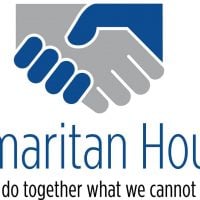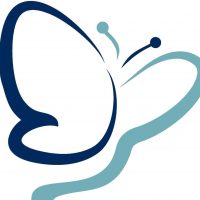Samaritan House
Drug Rehab Center in Annapolis, Maryland
Samaritan House, an Addiction Treatment Facility located in Annapolis, MD, has been providing personalized treatment plans to individuals suffering from a range of addictions since 1971 through evidence-based practices like CBT and 12-step facilitation therapy to help them achieve their goals for sobriety.
About This Maryland Facility
Samaritan House is an addiction treatment facility located in Annapolis, Maryland. The facility was founded in 1971 and has since been providing support and care to individuals struggling with various forms of addiction, including alcoholism, opioid addiction, substance abuse, drug addiction, and mental health issues. Samaritan House offers a range of comprehensive treatment programs and services to meet the unique needs of each patient. Their treatment approach aims to provide holistic care that integrates physical, emotional, and psychological support.
Samaritan House offers a wide variety of services and treatment methods to address addiction and substance abuse issues. They provide aftercare support, which assists patients in transitioning from a more intensive level of care to independent living. The facility also offers drug rehab programs that can be catered to both inpatient and outpatient preferences. Additionally, Samaritan House provides specialized care for individuals with a dual diagnosis, addressing both their addiction and any co-occurring mental health disorders they may have. They also offer residential levels of care for those who require more structured support along with intensive outpatient programs for individuals who need flexible treatment options while maintaining their daily responsibilities.
Genders
Ages
Modality
Additional
Conditions and Issues Treated
Using both legal medications and illegal substances in order to maintain an addiction is substance abuse. If you are taking more of your prescription, or earlier than the prescribed time interval between doses than is directed you may be abusing that medication. If you are obtaining legal medications illegally in or near Annapolis, MD, you may be suffering from substance abuse.
Illegal substances can become addictive after a single use and lead rapidly to substance abuse. The professionals at Samaritan House are here to help.
Opioids are a set of drugs prescribed for pain relief. Health care providers prescribe opioids for relief of severe pain after major surgeries and in conditions like cancer. Oxycodone, fentanyl, oxymorphone, hydrocodone, codeine, and morphine are some of the commonly prescribed opioids. They also include illegal drugs of abuse like heroin. Opioid addiction refers to the compulsive seeking of opioids, even when they are not required medically.
Opioid addiction treatment involves medication-assisted therapy (MAT) in which medicines, counseling, and behavioral therapies are all employed. Opioid addiction treatment is a comprehensive approach at Samaritan House in Annapolis, MD that boosts the treatment success rate and provides sustained recovery.
Mental illness includes conditions such as anxiety, depression, schizophrenia, bipolar disorder. It can also happen that mental illness causes drug addiction and vice versa. Samaritan House in Maryland knows it is vital to diagnose dual diagnosis or co-occurring disorder.
Levels of Care Offered at Samaritan House
This center offers a variety of custom treatment tailored to individual recovery. Currently available are Aftercare Support, Drug Rehab, Dual-Diagnosis, Inpatient, Intensive Outpatient, Outpatient, Residential, Sober-Living / Half-Way, with additional therapies available as listed below.
Inpatient treatment involves staying in the hospital or facility while treating all facets of addiction or co-occurring illness. This helps to minimize distractions and increase the emphasis on rehabilitation. Typical stays for inpatient rehabilitation in Annapolis, MD are about a month long.
Intensive outpatient programs (IOP) comprise regular visits to the Maryland facility that provides the therapy. IOP is suitable for patients who have been treated in residential treatment programs. Samaritan House‘s patients gradually get back to their routine life.
Facilities like Samaritan House offer a variety of services, such as individual and group counseling and family therapy. During the sessions, you work with a team of experts that include: General physicians, Psychiatrists, Social Workers, and Psychologists. The main goals of outpatient recovery programs are to help addicted individuals reduce drug use and addictive behaviors, eventually becoming entirely sober.
Sober living houses in Maryland help the patient to smoothly transition from a formal treatment program to a normal life. They are also known as recovery residences or half-way houses. SLH like Samaritan House provide the advantage of residing with a peer-group who had similar experiences.
Residential treatment programs are those that offer housing and meals in addition to substance abuse treatment. Rehab facilities that offer residential treatment allow patients to focus solely on recovery, in an environment totally separate from their lives. Some rehab centers specialize in short-term residential treatment (a few days to a week or two), while others solely provide treatment on a long-term basis (several weeks to months). Some offer both, and tailor treatment to the patient’s individual requirements.
Treatment is just a first step in sustaining sobriety. After rehabilitation, counseling for aftercare helps the person adapt to a life without drugs. A sober living facility in Annapolis, job therapy, or educational assistance may be included in this service, managed by Samaritan House. This is when a preventive strategy for relapse starts to take shape.
Therapies & Programs
Therapy plays a major role in addiction recovery. It encourages patients to get to the root of their addiction and learn how to better handle the issues that led to using. Therapy can be conducted in group and one on one settings. In Samaritan House‘s individual therapy, the patient meets with the therapist in a one on one setting. This allows them to focus on the underlying issues of addiction and come up with solutions to prevent future abuse.
One of the most common areas of stress and damage during addiction is in intimate relationships. Addiction involves everyone in a family, not only the addict. Couples therapy can rebuild trust and joy that may have been damaged.
When the whole family is involved, healing can be far more successful. Family counseling involves genetic factors to the family of the addict. This offers the means to cope with addiction and its underlying emotional disorders for loved ones. It is a helpful method for addicts in helping to adjust to sober living.
Trauma therapy allows people who struggled with a past trauma to face the situation and learn to overcome the situation. Many people who went through trauma early on, struggle with addiction later in life. By addressing the trauma and moving past the issues, it can help someone attending treatment at Samaritan House in Annapolis, MD move forward with their recovery and begin to take a better hold of their sober future.
REBT stands for rational emotional behavior therapy. This is a type of cognitive behavioral therapy, or CBT, that combines images with thoughts and behaviors. It allows for deeper education and understanding of what one can do to help themselves with recovery. It is a deep sense of self-help education managed by Samaritan House that lets someone recovering work through issues on their own, knowing they have the support of people around them if they need it.
Training someone on improved life skills allows for someone recovering from an addiction to feel more capable at taking care of him or herself. The skills taught at Samaritan House in Annapolis, MD are daily skills that give a better recovery foundation by simply giving someone the tools they need to survive. They include communicating, time and money management, career guidance, and more.
Contingency management is a way to help motivate someone to remain substance free. It is a process Samaritan House uses which involves rewarding positive choices and good outcomes. As humans we are wired to recreate experiences that lead to positive feelings.
Payment Options Accepted
For specific insurance or payment methods please contact us.
Additional Details
Specifics, location, and helpful extra information.
Annapolis, Maryland 21401 Phone Number(410) 269-5605 Meta DetailsUpdated November 25, 2023
Staff Verified
Patient Reviews
There are no reviews yet. Be the first one to write one.
Annapolis, Maryland Addiction Information
For the past decade, Maryland's rate of drug use and abuse has significantly increased. The overdose rate is currently higher than the national average. This epidemic is due to the many industries where manual labor is required. As soon as prescription opioids were more readily accessible a large part of manual workers started using–and eventually abusing–the painkillers.
4,000 people are living in Annapolis, Maryland who struggle with drug or alcohol addiction. About 36% of all drug-related arrests in Annapolis involve prescription drugs. 45% of drug addicts began using them before the age of 18. Numerous drug dealers are operating in the city and drugs can be purchased easily on the street. Despite these challenges, help is available. Drug treatment centers in Annapolis can provide the necessary support.
Treatment in Nearby Cities
- Rosedale, MD (24.6 mi.)
- Temple Hills, MD (24.9 mi.)
- Mardela Springs, MD (54.1 mi.)
- Chestertown, MD (30.1 mi.)
- Berlin, MD (83.4 mi.)
Centers near Samaritan House
The facility name, logo and brand are the property and registered trademarks of Samaritan House, and are being used for identification and informational purposes only. Use of these names, logos and brands shall not imply endorsement. RehabNow.org is not affiliated with or sponsored by Samaritan House.










